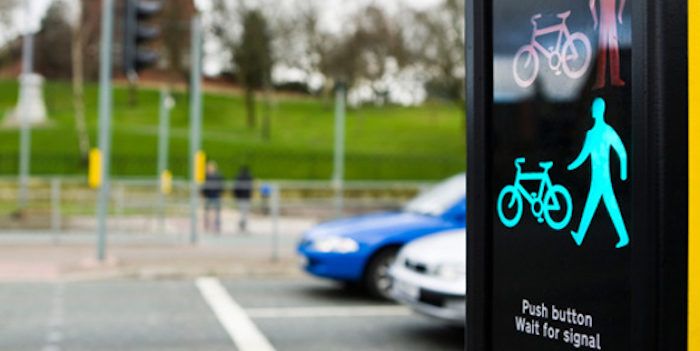In the UK, the Greater Manchester Combined Authority (GMCA) has approved £1.35m (US$1.72m) of new funding for improved traffic management on some of the region’s busiest routes that will lead to better monitoring and coordination of the road network.
The money will be spent on delivering the Corridor Management plan – which is led by Transport for Greater Manchester (TfGM) and supported by the metropolitan area’s 10 districts –to highlight potential causes of congestion and propose measures to improve performance.
A series of infrastructure improvements will be delivered to improve traffic flow, ranging from new and improved ALPR (automatic license plate recognition) cameras and networking monitoring software that will use GPS technology to provide real-time updates to in-car satnav devices and other navigation applications, through to new bus priority sensors at traffic lights and more digital message boards across the region.
A key part of the GMCA’s ‘Greater Manchester Congestion Deal’, the Corridor Management plan sets out to proactively identify and address problems on the most congested routes, particularly during peak periods. The Corridor Management plan comprises many specialist areas that includes, amongst others:
• Data and highways modeling;
• Enforcement;
• Network Instrumentation;
• Control of Works;
• Corridor Management including improvement schemes;
• Active travel;
• Travel Demand Management.
Currently, coordination of work on the region’s roads is managed by the 10 local highway authorities, however, the Corridor Management plan sets out to ensure closer scrutiny of planned work to ensure that it does not impact on the road network. While the Corridor Management plan promises to provide Greater Manchester with the tools and means to tackle congestion at a local level, the GMCA says much more is needed to truly address wider issues relating to traffic, such as poor air quality.
“At a time when our road network is experiencing increased levels of traffic, it’s essential that we continue to deliver new systems and processes to stay one step ahead of the traffic,” explained Peter Boulton, TfGM’s head of highways.
“Working alongside our district partners, we’re aiming to deliver a series of physical interventions and innovative digital services to help keep the public moving, particularly during the busiest times of the day. The funding will help us deliver long-term commuter benefits and ensure that we are able to realize a key ambition of the Congestion Deal.”
The Mayor of Greater Manchester, Andy Burnham, said, “This a small but critical step toward tackling congestion and the associated issue of poor air quality, which is made worse by standing traffic. Not only will this see the roll-out of new tools to enable TfGM to deliver real-time traffic updates, it will also add increased resilience to the work that their control center delivers around the clock.
“While this should go some way to better managing traffic flows, everyone can play a part in helping us reduce congestion and the damaging effects it’s having on the economy and our health. Whether that’s using public transport or cycling, or simply re-timing so we don’t travel during busy times, it all adds up to make a significant difference.”





